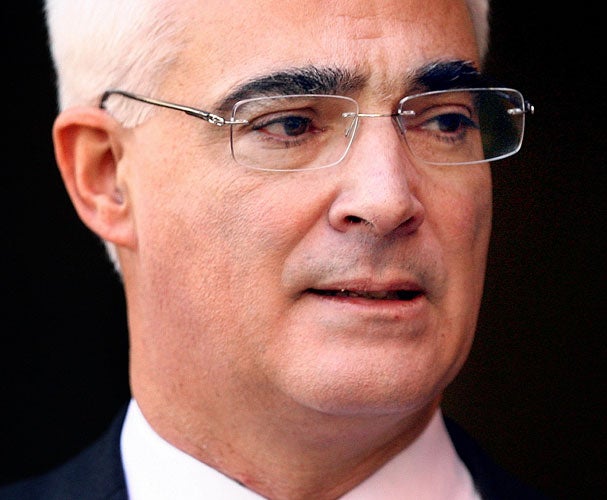Weak pound adds more than £3bn to Britain's EU bill
Chancellor's figures for UK's contribution to Brussels were calculated before sterling slumped

Your support helps us to tell the story
From reproductive rights to climate change to Big Tech, The Independent is on the ground when the story is developing. Whether it's investigating the financials of Elon Musk's pro-Trump PAC or producing our latest documentary, 'The A Word', which shines a light on the American women fighting for reproductive rights, we know how important it is to parse out the facts from the messaging.
At such a critical moment in US history, we need reporters on the ground. Your donation allows us to keep sending journalists to speak to both sides of the story.
The Independent is trusted by Americans across the entire political spectrum. And unlike many other quality news outlets, we choose not to lock Americans out of our reporting and analysis with paywalls. We believe quality journalism should be available to everyone, paid for by those who can afford it.
Your support makes all the difference.The pound's collapse against the euro has left Britain facing a multibillion-pound bill on top of the many billions already paid to the European Union.
Sterling's plunge close to parity with the euro has added more than £3bn to the amount the Government must pay to Brussels over the next three years. The figure has been inflated because the Government has to pay it in euros.
The increase comes on top of a trebling of the UK contribution to the EU – from £2bn this year to £6.5bn in 2010-11 – details of which were tucked away at the end of Alistair Darling's Pre-Budget Report in November.
The report revealed that Britain's net contribution to the EU will rise to £4bn next year and £6.5bn the following year. However, the Treasury has confirmed that Mr Darling's figures were calculated at a time when £1 was worth €1.4.
Opposition politicians last night condemned what they called the "perverse" additional penalty imposed on Britain by its troubled currency. But they claimed the problem was the legacy of the Government's decision to give up part of the UK rebate in 2005.
Current exchange rates will effectively increase the UK's contributions to the EU to around £5.5bn next year and, if maintained, to almost £9bn in 2010-11. This would leave a £3.6bn hole in the Government's finances.
The Liberal Democrats' Treasury spokesman, Vince Cable, said the roots of the problem were in the negotiations over the UK contribution at the end of Britain's EU presidency three years ago. Britain's payments to the EU budget were reduced by an annual rebate, first negotiated by Margaret Thatcher in 1984. They have been rising in line with a 2005 deal under which Tony Blair agreed to a staged series of cuts in the rebate.
Mr Cable said: "Tony Blair should have insisted on much more far-reaching commitments on agricultural reform, and that failure is costing us in higher contributions now.
"When sterling was riding high, Britain appeared to be a rich country. Now we are a poorer country but, because of the currency movements, we are being asked to contribute even more to the EU budget. It is utterly perverse."
The shadow Europe minister Mark Francois said the exchange rate compounded the problems already caused by the 2005 agreement.
He added: "As Mr Brown once said, a weak currency is due to a weak economy and a weak government. Thanks to Gordon Brown's mismanagement of our economy, the pound is now falling against the euro and this is going to cost Britain billions more in what we pay to the EU.
"Worryingly, Labour's latest mini-budget seems to have taken no account of these huge extra costs. That will mean even higher borrowing and even bigger tax rises under Labour."
A Treasury spokesman declined to comment on the impact of exchange rates, pointing out they could go up and down. He confirmed the rate used for EU contributions was always fixed at the end of the previous year.
Join our commenting forum
Join thought-provoking conversations, follow other Independent readers and see their replies
Comments